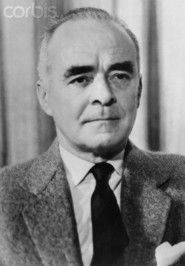A Quote by Ayn Rand
There is no hope for the world unless and until we formulate, accept and state publicly a true moral code of individualism, based on man's inalienable right to live for himself. Neither to hurt nor to serve his brothers, but to be independent of them in his function and in his motive. Neither to sacrifice them for himself nor to sacrifice himself for them.
Related Quotes
When a warrior fights not for himself, but for his brothers, when his most passionately sought goal is neither glory nor his own life's preservation, but to spend his substance for them, his comrades, not to abandon them, not to prove unworthy of them, then his heart truly has achieved contempt for death, and with that he transcends himself and his actions touch the sublime. That is why the true warrior cannot speak of battle save to his brothers who have been there with him. The truth is too holy, too sacred, for words." -Suicide (Gates of Fire)
Man—every man—is an end in himself, not a means to the ends of others; he must live for his own sake, neither sacrificing himself to others nor sacrificing others to himself; he must work for his rational self-interest, with the achievement of his own happiness as the highest moral purpose of his life.
A man cannot free himself by any self-denying ordinances, neither by water nor potatoes, nor by violent possibilities, by refusing to swear, refusing to pay taxes, by going to jail, or by taking another man's crops or squatting on his land. By none of these ways can he free himself; no, nor by paying his debts with money; only by obedience to his own genius.
And often he who has chosen the fate of the artist because he felt himself to be different soon realizes that he can maintain neither his art nor his difference unless he admits that he is like the others. The artist forges himself to the others, midway between the beauty he cannot do without and the community he cannot tear himself away from.
And he began to see the truth, that Ged had neither lost nor won but, naming the shadow of his death with his own name, had made himself whole: a man who, knowing his whole true self, cannot be used or possessed by any power other than himself, and whose life therefore is lived for life's sake and never in the service of ruin, or pain, or hatred, or the dark.
Though neither happiness nor respect are worth anything, because unless both are coming from the truest motives, they are simply deceits. A successful man earns the respect of the world never mind what is the state of his mind, or his manner of earning. So what is the good of such respect, and how happy will such a man be in himself? And if he is what passes for happy, such a state is lower than the self-content of the meanest animal.
The autonomous individual, striving to realize himself and prove his worth, has created all that is great in literature, art, music, science and technology. The autonomous individual, also, when he can neither realize himself nor justify his existence by his own efforts, is a breeding call of frustration, and the seed of the convulsions which shake our world to its foundations.
We believe in a moral code. Communism denies innate right or wrong. As W. Cleon Skousen has said in his timely book, The Naked Communist: The communist 'has convinced himself that nothing is evil which answers the call of expediency.' This is a most damnable doctrine. People who truly accept such a philosophy have neither conscience nor honor. Force, trickery, lies, broken promises are wholly justified.
The face of the Son of God, who, instead of accepting the sacrifice of one of his creatures to satisfy his justice or support his dignity, gave himself utterly unto them, and therein to the Father by doing his lovely will; who suffered unto the death, not that men might not suffer, but that their suffering might be like his, and lead them up to his perfection.
When a man has offered in sacrifice all that he has for the truth’s sake, not even withholding his life, and believing before God that he has been called to make this sacrifice because he seeks to do his will, he does know, most assuredly, that God does and will accept his sacrifice and offering, and that he has not, nor will not seek his face in vain.



































